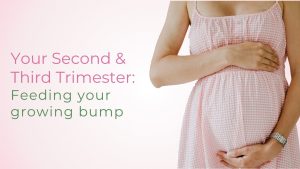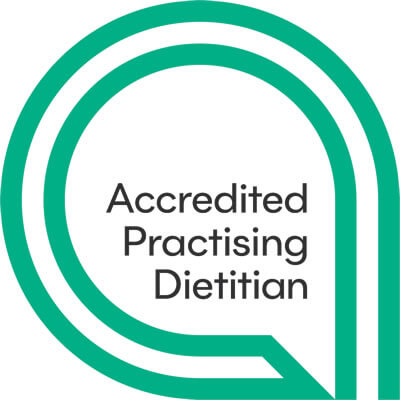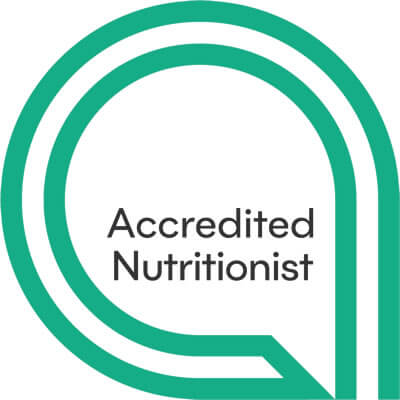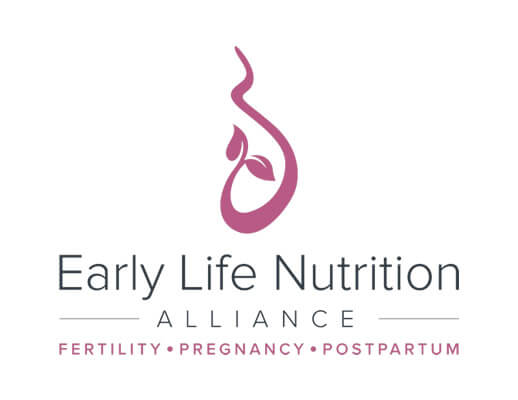5 Important Steps: The Journey Through the First 1000 Days
The 5 important steps on journey through motherhood is a remarkable and transformative experience, encompassing various pivotal stages, each with its own set of joys and challenges. This journey is more than just a passage of time; it's a series of steps that significantly influence the future of both mother and child.
Our exploration begins with preconception nutrition, where the groundwork for a healthy pregnancy is laid. This stage is all about preparing the body and mind for the incredible task of creating new life. Next, we transition to pregnancy and baby development, a period filled with growth and change, where the mother's nutrition directly impacts the baby's development.
The journey continues into the postnatal recovery phase, focusing on the mother's healing and the initiation of feeding the newborn. This stage is crucial for building the bond between mother and child and establishing a healthy foundation for the baby.
As the journey progresses, we focus on replenishing the mother and introducing solid foods to the baby. This step is about adapting to new dietary needs and ensuring both mother and baby are receiving the right nutrients for their evolving requirements.
Finally, we reach the stage of transitioning to family mealtimes, where the entire family comes together, fostering healthy eating habits and nurturing relationships through shared meal experiences.
Each of these 5 steps is a unique chapter in the story of motherhood, rich with learning and growth. Join us as we navigate these critical stages, offering insights and guidance to ensure a nurturing and fulfilling journey through motherhood.
Step 1: Preconception Nutrition
When it comes to preparing your body for conception and supporting your fertility journey, focusing on nutrition is key.
There is clear and compelling scientific data supporting the role of nutrition and improving parental health before conception. Changes to your nutrition in the months leading up to conception can have a significant improvement in fertility & pregnancy outcomes. During this time the majority of genetic programming occurs.
We need to remember that our eggs and sperm contain the genetic material for our future baby, and we know that sperm and egg health can be significantly impacted in the three months prior to conception so that’s why I choose this date.
Pre-pregnancy generally means the three months leading up to pregnancy and making sure you are your healthiest self during this preconception period can help with conception, reduce the risk of issues popping up during your pregnancy and also assist recovery from birth. Being at your healthiest body weight is a great place to start. Oh, and by the way, during this period, supplemental iodine and folate are recommended for tip-top pre-pregnancy nutrition preparation, so it’s best to chat to your GP or dietitian about your needs for these nutrients if you are planning a pregnancy.
For other great nutrition advice on eating well, take a look at The Australian Dietary Guidelines for sensible and evidence based approaches to eating for health. For exercise, the Australian Physical Activity Guidelines recommend that adults accumulate 150 to 300 minutes (it’s not as much as it sounds!) of moderate intensity physical activity or 75 to 150 minutes of vigorous intensity physical activity, or an equivalent combination of both, each week.
Of course, if your pregnancy just popped up without too much planning (what a lovely surprise), just get on board as soon as you can, to get all this good nutrition stuff underway.
Step 2: Pregnancy & Baby Development
Nourishing yourself and your precious little one becomes your first powerful act of love and care.
Good nutrition during pregnancy goes beyond the immediate, providing lifelong benefits as it nourishes both you and your growing baby, from the prenatal stage through the toddler years and beyond.
Not only does a balanced diet support your energy levels and well-being, but it also boosts your baby's brain development and ensures a healthy blood supply. During pregnancy, ensure you’re eating a healthy, balanced diet and remember that being the healthiest you can be and that what you eat will affect the health and growth of your baby. Eat according to the Australian Dietary Guidelines, and especially make sure that you get the right amounts of iodine and folate. Generally, the iodine and folate supplements you were having whilst planning your pregnancy should be continued during your pregnancy but again, you should chat to your GP or dietitian about these 2 important nutrients and other key nutrients of importance, including lots of healthy prebiotic fibres to feed the good gut bacteria. All this means that during pregnancy, we should mostly choose foods from the grains and leafy greens and vegetables food groups, fruit, dairy, lean meat, fish and legumes or their alternatives. You can see the Australian Dietary Guideline recommendations at eatforhealth.gov.au.
There are a few things to avoid during pregnancy, such as foods at risk of listeria bacteria contamination (e.g. soft cheese like Brie and soft serve ice cream, raw seafood like sashimi, prepared and pre-packed salads, and products from the deli such as ready-to-eat prawns, turkey, salami, ham and paté). Fish containing higher mercury levels should also be avoided during pregnancy, including Orange Roughy (Sea Perch), shark/flake, billfish (including swordfish, broadbill and marlin) and catfish, but low mercury containing fish such as Salmon and canned Tuna are fine.Oh, and during pregnancy, the recommendations around alcohol are clear: it is best not to have any alcohol at all during pregnancy.
Remember, you don’t need to be ‘eating for two’. Small increases in the amount of food you were eating pre-pregnancy is generally sufficient.
Step 3: Postnatal Recovery for Mum & Feeding Baby
After the miracle of childbirth, your body needs extra love and nourishment to support your healing and recovery, regardless of the type of birth. Nutrient-rich foods like fruits, vegetables, wholegrains, and lean proteins are vital for your healing and recovery, providing the strength you need for this new chapter as a mom.
Boost your immunity with vitamin C-rich foods, replenish iron levels with leafy greens and lean meats, and embrace a rainbow of colourful foods for overall well-being.
If you’re planning to breastfeed, remember that the quality of your milk is directly influenced by what you eat. Consuming a balanced and varied range of foods, rich in vitamin C, zinc, iron and calcium, ensures that your little one receives all the essential nourishment they need for healthy growth and development, without compromising your health.
Prioritising your nutrition is a form of self-care, ensuring you have the strength and vitality to cherish every moment with your baby during this precious time.
If you can, it’s recommended that babies are exclusively breastfed during their first six months of life. With every breastfeed, there are innumerable advantages for both mother and baby. Breastfeeding can help reduce your baby’s risk of weight issues and obesity later in life. Make sure you’re eating a varied diet as breast milk can influence children’s food preferences later in life. If breastfeeding is not possible, infant formula is the only safe alternative to breast milk.
During this step is also the first point when a baby’s own gut bacteria is set up, as when they pass through the birth canal they experience significant exposure to their mother’s microbes for the first time, although scientists now think that infants are exposed to some of their mum’s microbes in utero. From this point onwards, gut bacteria continues to develop, and stabilises around the end of the 1000 days.
A healthy mum means a healthy bub. Focusing on your well-being is key to being the best mom you can be!
Step 4 Replenishing Mum & Introduction Solid Food for Bub
The first 1000 days of your baby's life are full of milestones and precious moments, and now we've reached a crucial stage in their journey – introducing solid foods! It's an exciting time as they explore new flavours and textures, but ensuring they receive proper nutrition is vital for their ongoing healthy growth and development.
Some simple guidelines to help you through this step:
Timing: For most babies, solids should be given from 6 months (not before 4 months), but every child is different. Look for signs of readiness, like sitting up with support, showing interest in your food, reaching for and bringing object to the mouth and good head control.
Start Simple: Begin with single-ingredient, easily digestible foods like fruits and vegetables. This helps identify any potential allergies or sensitivities.
Nutrient-Rich Foods: As your baby's diet expands, include iron-rich foods like pureed meats, legumes and fortified cereals. Calcium, zinc, and healthy fats are essential for their development too.
Age-Appropriate Foods: Gradually introduce age-appropriate foods like soft, cooked vegetables, small pieces of ‘easy-to-squish’ fruit, and well-cooked grains. Avoid choking hazards and overly processed foods.
Learning to eat is like learning to run. It takes trial and error, some bumps along the way and many attempts to perfect. We have to crawl before we can walk, and walk before we can run so be patient with your little one. It might take a number of tries before new foods and textures are accepted (the research says as many as 15-20 times!). Keep offering a variety of options to build their confidence and expand their taste preferences.
Remember, this stage is not just about your baby – it's about YOU too!
With so many demands on your body during this time, a well-balanced eating pattern is crucial to support your 24/7 stamina. Prioritise self-care and nourish yourself with wholesome meals to help you stay healthy and happy.
Step 5 Transitioning to Family Mealtimes
Did you know that the importance of regular, structured, and balanced family meals can have a profound impact on our children's development, their eating habits, food choices and long-term health?
Not only does it enhance their ability to learn and process information but also helps them manage emotions effectively, communicate and engage with others better and increase self-esteem. That's right – the power of nutrition goes beyond a full tummy!
By the time your baby reaches his or her first birthday, they should be enjoying a varied diet, and develop the muscles and skills they need for chewing and eating. Milk should still be present, as it provides important nutrients, but by now their diet should be filled with different colours, textures and provide a range of taste profiles.
And as your baby becomes more and more aware of what’s going on around them, remember that you need to be setting a good example. Being a good role model is particularly important at this time.
Lastly, remember that routine is everything. Babies will need a regular routine with appropriate serving sizes. Babies have very small tummies, so they will not eat large amounts all at once. Smaller serve sizes, offered more often, is the way to go…
The right nutrition is a lifelong commitment and setting the right example for your baby as they grow will ensure they pick up healthy eating habits, which they’ll keep with them long after you’re done preparing their meals!
As your children continue to grow, remember to always make family mealtimes matter!
The First 1000 Days: 5 Important Steps on the Journey Through Motherhood
As we conclude the journey of the 5 important steps through motherhood, the first 1000 days of a child’s life, it becomes clear that these initial steps are more than just a beginning; early life nutrition is a blueprint for a lifetime. From the moment of conception to the second birthday, every decision, every nutrient, and every moment of care weaves together to form the tapestry of a child’s future.
In this exploration, we’ve uncovered the profound significance of early life nutrition and care across five critical stages: preconception fertility, pregnancy and baby development, postnatal recovery and feeding, introducing solid foods, and transitioning to family mealtimes. Each of these stages represents a unique opportunity to nurture and shape a child’s growth, development, and well-being.
The journey through the first 1000 days is a testament to the power of thoughtful, informed parenting and caregiving. It's a reminder that our actions and choices have a lasting impact, echoing through the years of a child's life. As we nourish their bodies, we also feed their minds, hearts, and spirits, paving the way for a healthy, happy, and thriving future.
Make Every Day Count
Let this journey inspire and empower us to make every day count, to cherish each moment, and to provide the best possible start in life for our children. The path we lay down now is the foundation upon which they will build their dreams, their health, and their futures. Here’s to nurturing the next generation, one step, one day, one thousand moments at a time.








